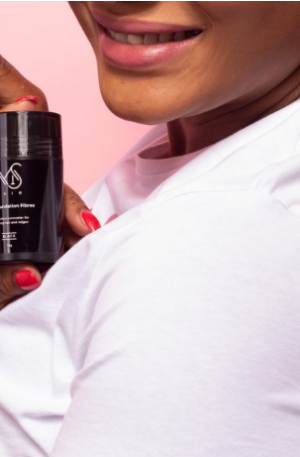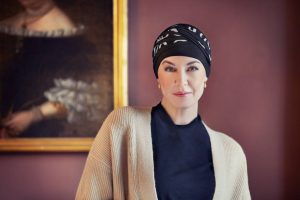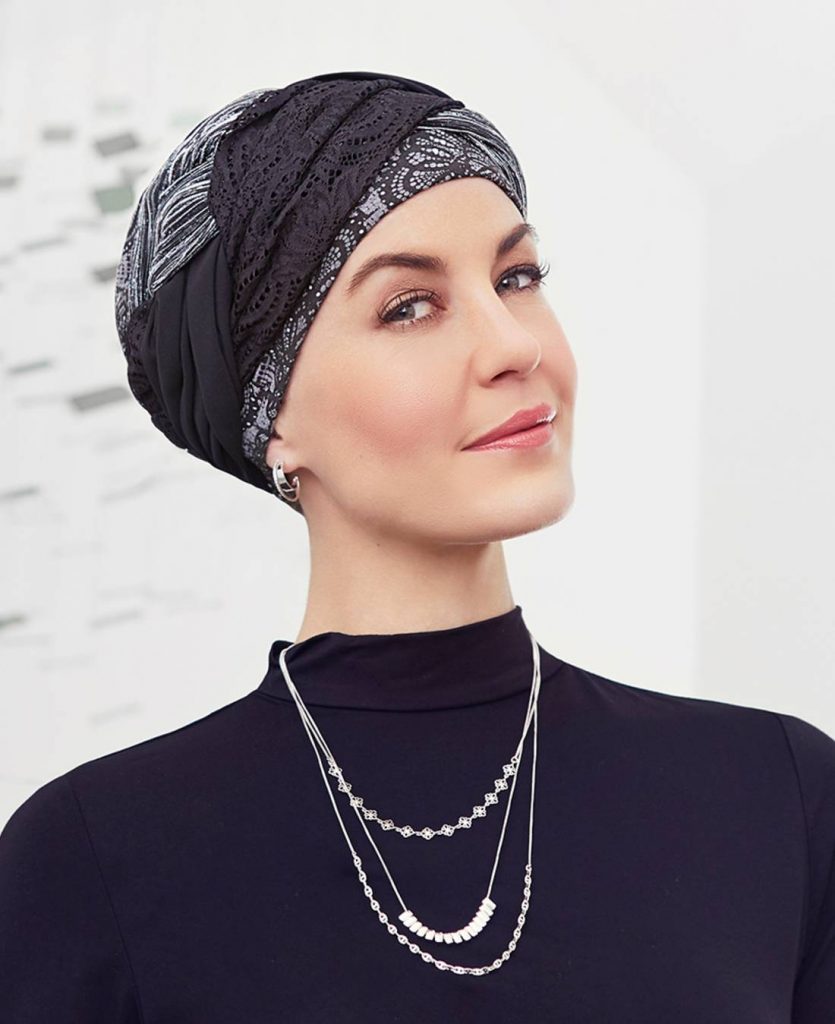What is CCCA?
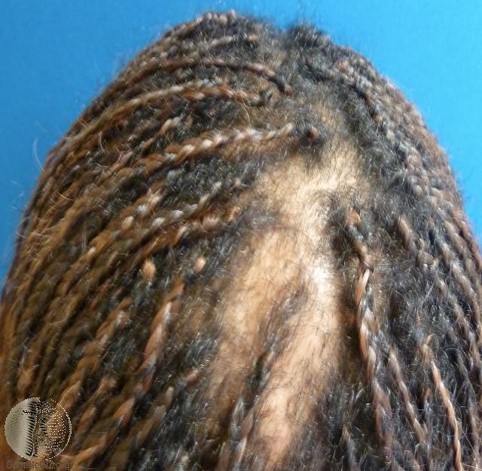
This is a form of permanent hair loss which is more commonly seen in black women. It is thought to affect 1 in 20 women of African descent.
This condition can also rarely be found in men and people with other hair types. Women in their middle years are most commonly affected.
Hair loss is seen typically at the top of the head, and the hair loss spreads outwards across the top of the scalp. The scalp may appear shiny. While some people don’t have symptoms, tenderness, itch and burning are common.
Hair breakage may also be an early sign seen.
This is a cosmetically significant condition for black women, and it is really important to take action quickly.
It can also affect men who may incorrectly seek a hair transplant thinking that they have male pattern hair loss. The risk factors appear to be slightly different.
Can it progress?
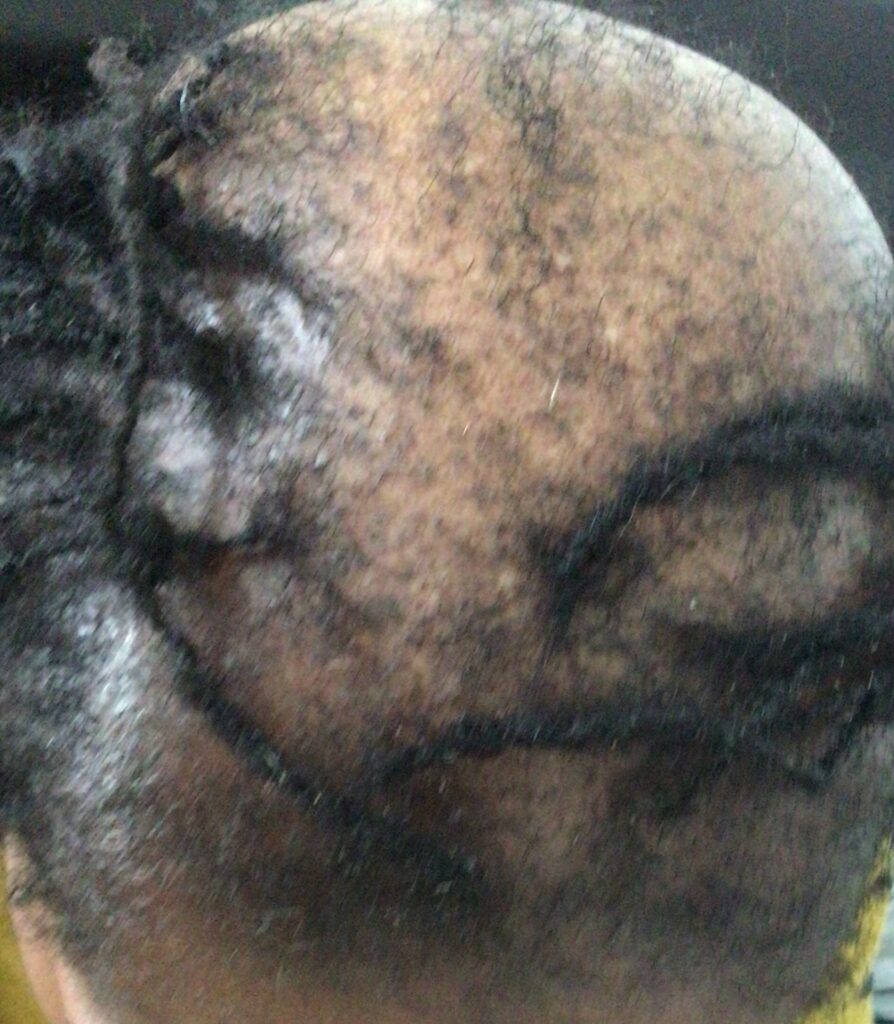
Yes.
Without appropriate action the hair loss will be progressive and gradually extend over a period of years, leading to the absence of hair on the crown which can be extensive.
It is very important to take action early.
There are no national guidelines on the management of CCCA in the UK, but it is important that the care is overseen by a dermatologist with expertise in hair loss. In the NHS cosmetic treatments are not offered, so this clinic complements what is available.
It is important to understand that results are not guaranteed and the recommendations made are based on scientific principles, the experience of this clinic and the experiences that others working in the field internationally have shared.
What causes CCCA?
This condition can run in families and a variant gene PADI3 has been implicated in its cause. Hair care practices have been associated with the condition. It has been seen in children
Most of the recent advances in treatment have come from Dermatologists in the United States of America and South Africa. The evidence base is constantly being updated so this clinic encourages clients to use the opportunity of the first follow up appointment within one month and a further follow up appointment 6-12 months after the initial consultation as there may be updates on management of the condition.
How is the condition diagnosed?
The diagnosis can be made by the characteristic appearance, but it can sometimes appear with a different pattern of hair loss.
This clinic has identified very early stage CCCA by using TrichoLab imaging which was later confirmed by a scalp biopsy. The image below shows the characteristic findings.
This has meant that this lady has been able to take appropriate measures to help to slow down the rate of hair loss, and her follow up TrichoLab actually showed improved hair parameters.
The definitive way to diagnose it is with a biopsy – which is where a small sample of the skin of the scalp is removed and examined under the microscope. This should ideally be done by a dermatologist with expertise in managing hair loss. Waiting times for this procedure in the NHS can be lengthy, and so if you have a diagnostic hair loss consultation, you will be given detail on what you could ask your GP to prescribe. If your GP is not willing to prescribe there is the option of having medications prescribed privately through the clinic.
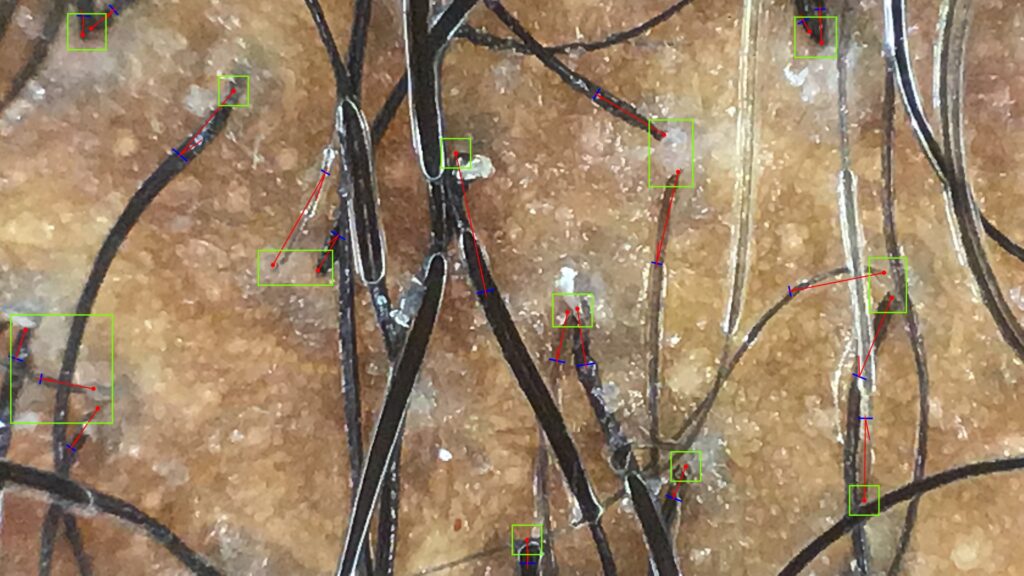
How can Crewe Hair and Skin Clinic help?
The evidence base on this condition has been progressing internationally, so the advice you will be given will depend on the information available at the time. This clinic offers the ability to talk through your options including seeking further advice through the NHS. Other hair loss conditions may also be contributing, so it is important to invest in a full assessment so that the full range of issues can be assessed. Advice can be given on which topical and oral medications, procedures and technologies can be considered for helping to rescue the hairs.
The clinic can document the status of the hair loss condition using TrichoLab to help to monitor the condition. This has been particularly helpful in CCCA which has been picked up early. You will be advised to seek the advice of a dermatologists specialising in hair loss ideally with experience in managing the condition for a scalp biopsy where there is diagnostic doubt, or for consideration of more potent medications.
This clinic offers a holistic approach so that evidence-based advice on appropriate hair care can be advised on, and if other hair loss conditions are possibly present can provide tailored advice.
This condition is not well known among GPs at the moment, but hopefully this situation will change as awareness increases about the condition. This clinic encourages ongoing prescribing for this condition from the GP, but in certain circumstances may be able to prescribe medications that would be available in primary care. The clinic director has written an article for the Primary Care Dermatology Society about this condition to help educate GPs which can be made available to clients who have been seen at this clinic.
Some women who have already visited a NHS dermatologist find a consultation with the clinic helpful as more time is allowed and the range of alternative options can be discussed.
Can Platelet Rich Plasma be helpful?
Evidence is emerging from the USA about the potential use of Platelet Rich Plasma. This is a treatment available from this clinic where blood is taken from you, spun down in a centrifuge to separate out the platelet rich part of the plasma. This is then injected into the areas of hair thinning using find needles.
The aim of treatment is to stop or slow down progression of the disease. In some cases there is a small chance of regrowth if the hair follicle is not permanently damaged. However results may vary, can be subtle and are not guaranteed.
There may be other ways the clinic can help including sources of information, advice on medication, hair care, scalp camouflage and bespoke custom made wigs.
Are other clinic treatment options available?
The approach taken at this clinic intends to complement what is available in the NHS.
At the moment, there is very little published evidence on aesthetic treatments which benefit CCCA. However, using scientific principles there may be adjunctive treatments that could help.
- Polynucleotides can help with improving hair quality
- Peptide treatment such as the Pharma Hermetic Hair Recovery Programme could also be helpful
Presently exosome treatment (Purasome and Regenera Activa) are not offered as treatment until further experience is seen internationally.
What about low level laser light therapy for CCCA?
Dermatologists with expertise in hair loss in the US seem to include this as a recommendation. However the licensed/intended use is for male and female pattern hair loss.
There do not appear to be any published studies on this, and unfortunately the main brands of this treatment have not included people with darker skins in their studies to a level that they are able to guarantee results in the same way as those with lighter skins.
Should I wear a wig?
If the hair loss is at an early stage, hair loss can be camouflaged effectively using hair fibres (please scroll down the page)
The internal cap construction is very important.
This clinic is able to supply high quality wigs from the Trendco range.If you scroll down the page this links to, the echo range has wigs which may be preferred by women with afro-textured hair.
This clinic can supply bespoke hair pieces for more advanced forms of hair loss which can be attached by clips.





What about cosmetic camouflage?
For many years this clinic recommended MS Hair fibres which are made from keratin and natural plant extracts, and were popular with people with Afro-textured hair who had traction alopecia/ CCCA/ Lichen Planopilaris.
Sadly from 2024 the company took a different direction, so is no longer supplying the product directly to the public.
From February 2025 the clinic should be able to supply the same product in Black and Dark Brown under the Doctor Trichology Brand. Each fibre is statically charged to bond to your existing hair, making your hair look naturally thicker and fuller.
How to apply cosmetic camouflage fibres
What about other head coverings?
This clinic recommends headwear from the Christine Headwear range.
This headwear is specifically designed for women with alopecia (hair loss) to be comfortable.
The use of natural materials, such as cotton, linen and silk materials with light airy designs and super soft fabrics.
Please click on the images below if you would like to buy.
Newsletter
Signup for news and special offers!
Thank you!
You have successfully joined our subscriber list.

